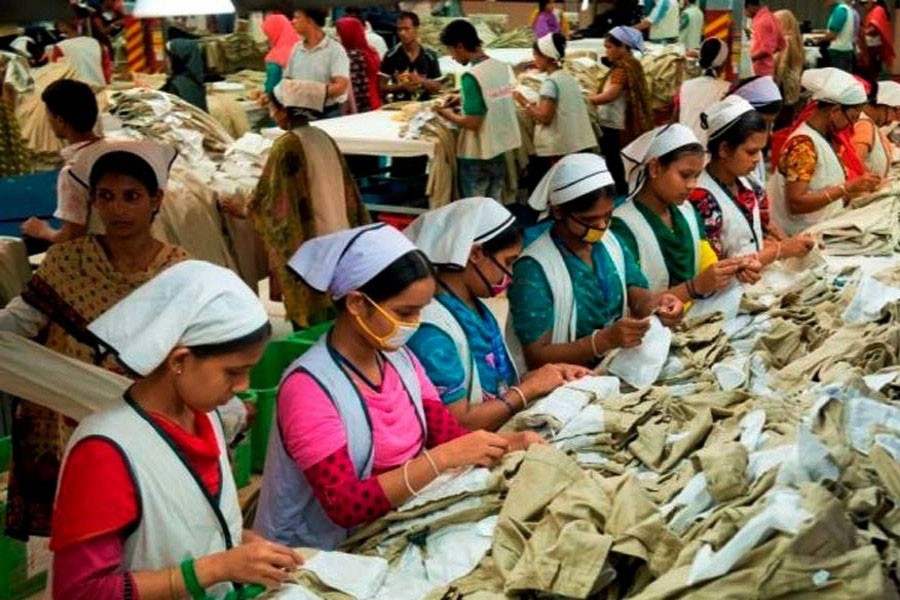
Published :
Updated :

Women in the ready-made garment (RMG) sector in Bangladesh do not receive legitimate benefits like paid maternity leave, according to a latest survey report.
Most females polled have said they did not know about their legal rights for paid maternity leave, it said.
Even many factories represented in the survey do not adhere to the national legal requirements for paid maternity leave or onsite childcare facilities.
Fair Labour Association (FLA) and Awaj Foundation launched the study styled 'Maternity Rights and Childcare in Bangladesh: A Study of Workers in the Ready-Made Garment Sector' on October 15.
The US-based FLA acts as a collaborative agent among business, civil society and educational institutions to protect and promote worker rights workers across the global supply chain.
"Legal protection for women workers are meaningful only when they are implemented in the workplace and not just words on paper," said FLA president and chief executive officer Sharon Waxman.
"Our study finds a perfect storm that undermines the rights of pregnant women and new mothers," she added.
Women workers' unawareness of their rights, management's failure to offer legally required benefits and instances of deception where facilities such as childcare centres exist in name only.
The report provided an analysis of data collected from 88 women workers aged 21 to 30 in Bangladesh's garment sector, drawn from 12 factories.
Almost all workers are aware that factories offer maternity leave, but most are unaware of the amount of time off to which they are legally entitled.
According to the findings, the respondents reported that workload and pressure to meet targets was the same for pregnant workers as others.
Although 75 per cent of factories provided daycare service, only 13 per cent of respondents said these facilities were functional and most did not know eligibility requirements to enroll children.
The report found pervasive discrimination on maternity rights and access to childcare in the ready-made garment sector, where female workers constitute 65 per cent of the apparel workforce.
It suggested organising awareness campaigns and providing training to educate workers and factory managers' appropriate accommodations for pregnant workers, including periodic sitting and rest periods.
The report illustrated the importance of workers' right to freedom of association and union advocacy when factory management is not in compliance.
Bangladesh has instituted a number of legal protections for women workers in recent years, said Nazma Akter, founder and executive director of Awaj Foundation.
"But we've found that factories are often operating in violation of these laws or are failing to make workers aware of their rights under the law," she cited.
"In order for us to protect working mothers and their dependents, we must hold companies accountable and educate workers of their rights so that these trends don't continue."
munni_fe@yahoo.com


 For all latest news, follow The Financial Express Google News channel.
For all latest news, follow The Financial Express Google News channel.